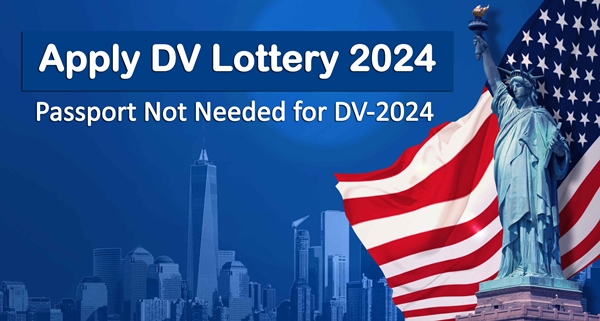
NAFTA Visa to Canada – The North American Free Trade Agreement (NAFTA) is a trade agreement between Canada, the United States, and Mexico. The NAFTA work permit was created in 1994 and provides specialized working opportunities for the citizens of the United States and Mexico to work in Canada by providing them with a temporary work permit.
A great benefit the NAFTA gives applicants are the opportunity to be eligible for a NAFTA work visa without the need for a Labour Market Impact Assessment (LMIA), and in some cases without the need for a visa.
This makes it much easier for you to live and work in Canada as a citizen of the above countries. Continue reading to see which five categories fall under this agreement.
Categories Under NAFTA Visa to Canada
NAFTA Professionals
The NAFTA Professionals category allows foreign national professionals to apply for a work visa without requiring an LMIA. However, if you would like to apply through this stream you’ll need to have work experience in one of the NAFTA Professional List of Occupations which includes:
- Accountant;
- Engineer;
- Computer Systems Analyst;
- Graphic Designer;
- Hotel Manager;
- Architect; and
- Economist.
Other requirements for the NAFTA Visa to Canada; A Professionals stream include:
- You must be a citizen of either the United States or Mexico; and
- Demonstrate your qualification by providing a degree or certificate and evidence of arranged employment with a Canadian employer.
You can apply for a NAFTA visa at a Canadian Port of Entry (POE), at a Canadian visa office before you enter Canada, or inside of Canada. When applying you’ll need the following required documents:
- Proof of American or Mexican citizenship;
- Confirmation of pre-arranged employment in Canada;
- Proof of Canadian employment indicating the profession of the employment; and
- Credentials demonstrating their qualifications in their intended profession in Canada.
NAFTA Intra-Company Transferees
The NAFTA Intra-Company Transferees allow citizens of the agreed countries to transfer from within their company to the same company in Canada, only they won’t need an LMIA to do so. You will need to apply for a work permit even when moving to Canada through this stream.
To qualify for this stream you’ll need to meet the following requirements:
- You must be a citizen of either the United States or Mexico; and
- You need to be looking for employment in Canada in an executive capacity, a managerial capacity, or in a position that requires specialized knowledge.
Please note that specialized skills refer to those skills which are vital to the operation of a business. You would need to have extensive knowledge of the specified skills that the average skilled worker wouldn’t have.
The following documents will need to be provided by you if you’d like to apply for a visa through the NAFTA intra-company transferee stream:
- Proof of American or Mexican citizenship;
- Confirmation of current employment by an enterprise outside of Canada;
- Proof of one year of full-time employment completed within the three years prior to the application date;
- Proof the Canadian position meets criteria as executive capacity, managerial capacity, or requiring specialized knowledge;
- Outline of the position in Canada;
- The intended duration of stay in Canada;
- Description of the relationship between the enterprise Canada and the American or Mexican enterprise.
If you’re successful with your application you may be eligible for a NAFTA work permit valid for up to three years, and some companies even extend the visa for another two years.
NAFTA Investors
The NAFTA Investors stream allows some American and Mexican investors to be eligible to apply for a work visa without an LMIA. To qualify for this, you’ll need to have a committed investor, and the intention to commit or invest a substantial amount of money into Canada.
Requirements for the NAFTA Investors:
- You must be a citizen of either the United States or Mexico;
- The investor must show that they’ve made, or are making a significant investment of capital in Canada; and
- If the person applying is an employee of a company, then their position needs to be in an executive capacity, a supervisory capacity or they need to have essential skills.
Good to know:
The nationality of a company is determined by the ownership instead of the location the company is situated in. The NAFTA permits are valid for a one-year maximum but an investor may apply to extend the visa for two more years.
NAFTA Traders
This is yet another way citizens of America and Mexico can apply for a visa without the LMIA. For this stream, you’ll need to, as a trader, show your involvement in the trading of goods or services largely carried out between the United States or Mexico, and Canada.
You’ll need to meet the following requirements in order to be eligible for a Canadian work visa through the NAFTA Traders:
- You must be a citizen of either the United States or Mexico;
- The investor must show that they’ve made, or are making a significant investment of capital in Canada; and
- The nationality of the company is based on ownership and not on location.
NAFTA Business Visitors
Businessmen from America or Mexico can enter Canada temporarily, and conduct international business, without the need of a Canadian work permit or an LMIA. You, as the businessman, will need to do business activities that are of international scale and should maintain the primary source remuneration and principal place of business outside of Canada.
Important to know:
You can’t enter Canada under this stream if your intention is to enter the Canadian labor market.
When entering as a NAFTA business visitor, you’re only authorized for short-term periods. However, certain circumstances may change the time period.
Increase Your Canadian Visa Success
As immigration experts, we work alongside Regulated Canadian Immigration Consultants (RCICs). With their knowledge and years of experience, they are able to assist you on your NAFTA work permit journey by ensuring you have all the information and documentation you’ll need to submit the application on your behalf.
This way you’ll be working in Canada and enjoying the benefits sooner than later.




